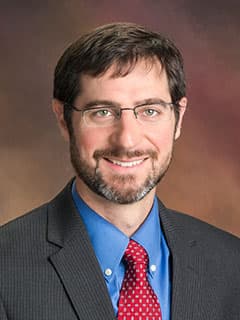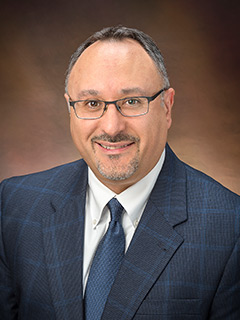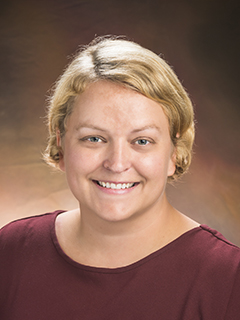HOW CAN WE HELP YOU? Call 1-800-TRY-CHOP
In This Section
March of Dimes Prize, Immunotherapy, CHOP CARES, MIS-C, PCORI Grant

As we find ourselves one week into February of 2022, the new year is already packed with new grants, novel findings, and many more headlines in Children's Hospital of Philadelphia research news. In this edition of our biweekly roundup, learn about a prestigious prize in developmental biology awarded to one of our physicians, a discovery that could enhance neuroblastoma's susceptibility to immunotherapy, a $4.9 million multi-institute award to study adult congenital heart disease, and much more. Happy reading!
Pioneer in Fetal Surgery Dr. Alan W. Flake Receives Prize in Developmental Biology

Alan W. Flake, MD
Congratulations to Alan W. Flake, MD, who received the 2021 Richard B. Johnston Jr., MD, Prize in Developmental Biology from the March of Dimes! For more than three decades, Dr. Flake has advanced fetal surgical techniques and therapies to help babies with life-threatening or devastating fetal conditions and those experiencing preterm birth. He is director of the Center for Fetal Research at CHOP and a professor of Surgery at the Perelman School of Medicine, University of Pennsylvania.
"Dr. Flake is the perfect example of a physician-scientist," said Dr. Erme Seli, Chief Scientific Officer at March of Dimes. "For decades, he has brought cutting-edge research and transformative surgical innovations from the bench to the bedside, treating babies with life-threatening fetal malformations and congenital diseases."
As a pediatric surgeon, Dr. Flake has developed surgical and therapies to care for babies with diseases ranging from spina bifida, congenital diaphragmatic hernia, tumors, and other complex conditions affecting fetuses and neonates. He also was the first to investigate the therapeutic potential of transplanting stem cells in utero to treat genetic disorders.
His latest research focuses on babies born preterm, which is a leading cause of death of babies in the U.S. and developing countries. His lab developed an extra-uterine environment that encases the fetus in fluid and replicates the functions of the maternal womb, connecting the fetus through its umbilical cord. Starting in animal models, he is studying the benefits of this natural environment for babies born extremely preterm.
Now in its 25th year, the Prize in Developmental Biology honors an outstanding scientist who has advanced the science that underlies our understanding of pregnancy, birth, and prenatal development.
Find more information about the prize.
Chemo-resistant Mesenchymal Cells in Neuroblastoma Potential Targets for Immunotherapy

Adam J. Wolpaw, MD, PhD
Neuroblastoma has not historically been a candidate for some of the types of immunotherapies that have revolutionized the treatment of some adult tumors, particularly immune checkpoint blockade. This is due in part to a lack of the display to the immune system of tumor-specific targets. A CHOP-led research team hypothesized that increasing inflammatory signaling in neuroblastoma could enhance that presentation and lead to susceptibility to immunotherapy.
Neuroblastoma cells can exist in two different epigenetic states: a less-differentiated mesenchymal state (MES), and a more differentiated adrenergic state (ADRN). In neuroblastoma, most tumor cells are in the ADRN state at the time of diagnosis, but studies have shown tumors might be enriched in chemotherapy-resistant MES cells in relapsed and metastatic disease.
"Our data suggest that immune-directed therapies, particularly harnessing T cells, may be able to exploit the elevated basal inflammatory signaling and sensing of the mesenchymal state," said first author Adam J. Wolpaw, MD, PhD, an attending physician in the Cancer Center at CHOP and postdoctoral fellow in the lab of senior author and Ludwig Scientific Director Chi Van Dang.
The study team characterized the inflammatory signaling pathways in 20 different neuroblastoma cell lines exposed to three different inflammatory stimuli, to help understand the fundamental inflammatory state of the tumor and suggest potential avenues to alter that state.
They found that cell lines in the mesenchymal state were responsive to double-stranded RNA (dsRNA), whereas cell lines in the adrenergic state were not. Genetically switching adrenergic cell lines toward the mesenchymal state fully restored responsiveness. In responsive cells, inflammatory stimuli resulted in the secretion of pro-inflammatory cytokines, enrichment of inflammatory transcriptomic signatures, and increased tumor killing by T cells.
"Given the distinct transcriptional and regulatory networks of MES and ADRN cells and the resistance of the MES state to chemotherapy, it is likely that curing neuroblastoma will require simultaneous targeting of both states with separate, but perhaps synergistic, therapies," Dr. Wolpaw said.
Learn more about this research published in Proceedings of the National Academy of Sciences.
Penn/CHOP CARES Program Supports Researchers With Caregiving Responsibilities
A selection committee made up of key stakeholders from within CHOP and the Perelman School of Medicine, including CHOP Research Institute CSO Susan Furth, MD, PhD, announced awardees in the Penn/CHOP CAregiver REtention Support (Penn/CHOP CARES) program. Supported by the Doris Duke Charitable Foundation and its partners, the program is designed to help maintain research productivity and retain early career physician-scientists faced with pandemic-related family caregiving responsibilities.
The CHOP awardees include junior faculty from the tenure and clinician-educator tracts: Maire Conrad, MD; Amy Kogon, MD, MPH; Catherine Avitabile, MD; Christina Szperka, MD, MSCE; Elizabeth J.K. Bhoj, MD, PhD; Diana Montoya-Williams, MD; and Timothy S. Olson, MD, PhD.
Each recipient will receive $50,000 for one year of funding to hire administrative personnel, statisticians and/or technicians. In addition the Penn/CHOP CARES program offers complementary activities to facilitate cohort-building, camaraderie, and career success for these faculty facing similar challenges.
Read more on Cornerstone.
Protein Profiles Dysregulated in Patients With MIS-C

Hamid Bassiri, MD, PhD
Researchers at Children's Hospital of Philadelphia analyzed the plasma protein landscape of patients with MIS-C, severe COVID-19, mild or asymptomatic COVID-19, and otherwise healthy controls to better understand cytokine dysregulation in MIS-C and its association with thrombotic microangiopathy (TMA). TMA is a syndrome that involves clotting in small blood vessels and has been identified as a potential cause for severe manifestations of COVID-19 in adults; however, the mechanism of TMA in the context of MIS-C is unknown, and its association with cytokine dysregulation remains unclear.
Based on their analysis of more than 1,400 plasma proteins, the researchers found that protein signatures of patients with MIS-C overlap with those of patients with macrophage activation syndrome (MAS). Similar to MAS, IFN-γ (and one of its downstream proteins, CXCL9) were dysregulated in MIS-C patients.
The researchers also found that levels of IFN-γ may predict the severity of cardiac dysfunction in patients with MIS-C; paradoxically, they observed that patients who had higher IFN-γ levels displayed better cardiac function than those with lower IFN-γ levels.
Levels of PLA2G2A were markedly high in almost all patients with MIS-C and differentiate MIS-C patients from other SARS-CoV-2 infected patients, making PLA2G2A a potential biomarker for MIS-C. The researchers noted it will be important to understand the mechanism of PLA2G2A in MIS-C pathophysiology, since PLA2G2A and its associated pathways can be targeted with the common, inexpensive medication indomethacin.
"We have made several observations about the underlying pathophysiology of MIS-C, and our future studies will hopefully identify the mechanistic relationships between IFN-γ, PLA2G2A, and other drivers of MIS-C initiation and immunopathology," said Hamid Bassiri, MD, PhD, an attending physician in the Division of Infectious Diseases at CHOP, and co-senior author of the study, along with David T. Teachey, MD, and Edward M. Behrens, MD.
The findings appeared in Nature Communications. Read more in the CHOP press release.
Fourteen U.S. Institutions Join Patient-centered Study of Adult Congenital Heart Disease

Emily Ruckdeschel, MD
Children's Hospital of Philadelphia is partnering with institutions around the United States to study how gaps in healthcare affect the health and well-being of adults with congenital heart disease (CHD). The research, which is supported by a $4.9 million award from the Patient-Centered Outcomes Research Institute (PCORI), will gather data on patients aged 18 years or older who have a congenital heart disease diagnosis, via the 14 participating research sites.
The study draws on the vast health data resources of PCORnet®, the National Patient-Centered Clinical Research Institute, to conduct this study more efficiently. With health records for 66 million patients available for observational studies, the PCORI-funded PCORnet provides vast scale to power research on conditions affecting even small numbers of people.
This project leverages the first patient-powered registry for adults with CHD — the Congenital Heart Initiative (CHI). Patients who are recruited for this research will participate via enrollment in the registry, which will allow researchers to ask patients directly about health, wellness and any specific barriers to care. The effort is led by Children's National Hospital and Louisiana Public Health Institute. The principal investigator at CHOP is Emily Ruckdeschel, MD, an attending physician with the Philadelphia Adult Congenital Heart Center and the Division of Cardiology.
As identification, understanding and treatment of CHD have improved over the last few decades, the number of adults living with CHD now exceeds the number of children born with these various structural defects today, but little is known about long term outcomes for these adults. The new research study will combine clinical data with patient-reported data to help guide health care providers in how best to care for the unique needs of this population throughout their lives.
PCORI is an independent, nonprofit organization authorized by Congress in 2010 to fund research that will provide patients, their caregivers and clinicians and other healthcare decision makers with the evidence-based information needed to make better-informed healthcare choices.
ICYMI
Catch up on our headlines from our Jan. 21 edition of In the News:
- Can Climate Change Lead to an Increase in Kidney Stones?
- Infants with Low-Risk Deliveries Should Not Need Antibiotics at Birth
- Evolution of SARS-CoV-2 Seroprevalence Among CHOP Employees During COVID-19 Pandemic
- Within Three Months, Heart Function in Children with MIS-C Returns to Normal
- CHOP Scientist Receives Funding From People Against Leigh Syndrome
Keep up with our news, stories, and updates in real time by following us on Twitter, Facebook, LinkedIn, or Instagram. Or subscribe to our newsletter to get an email sent every other Friday by signing up here.


